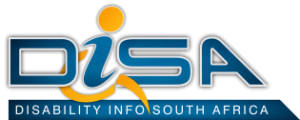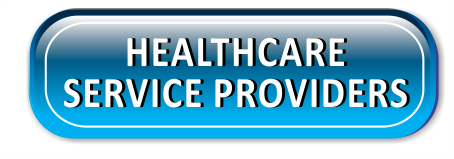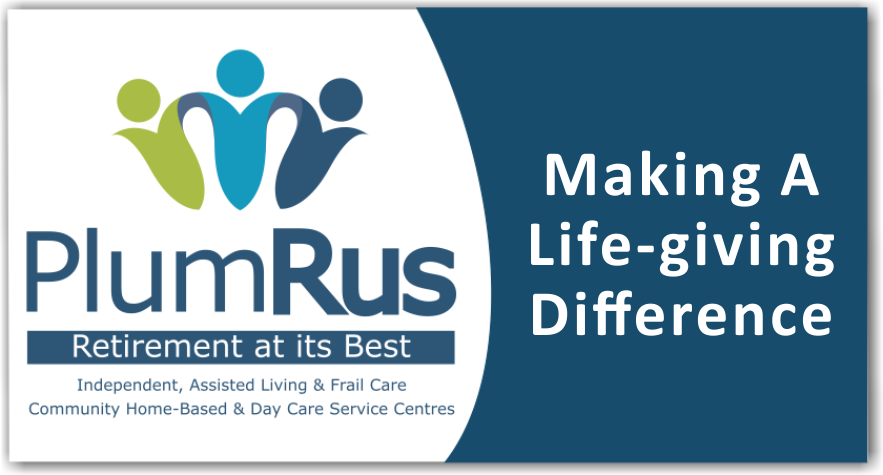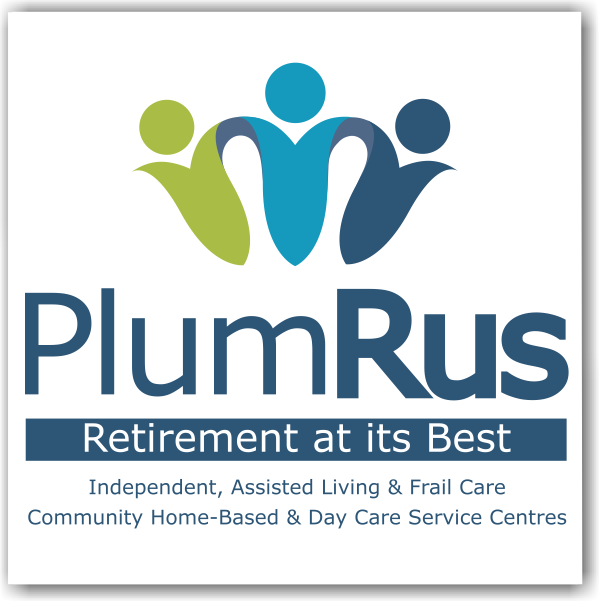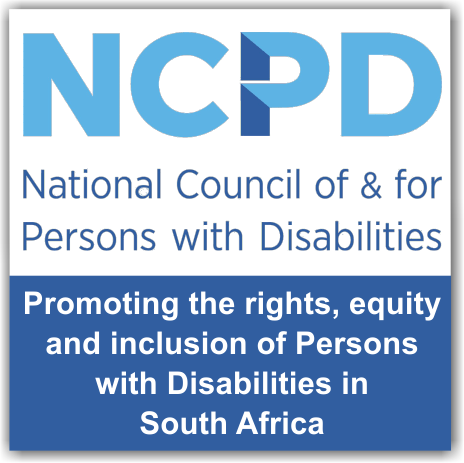Healthcare & Rehabilitation For Persons With Visual Impairments
To view the Healthcare & Rehabilitation service providers that are available in your area, click the button to the right.
Contents: To jump to the topic you would like, click on the links below
Introduction
Globally, 1 billion people have a vision impairment that could have been prevented or has yet to be addressed. This 1 billion people includes those with moderate or severe distance vision impairment or blindness due to unaddressed refractive error (123.7 million), cataract (65.2 million), glaucoma (6.9 million), corneal opacities (4.2 million), diabetic retinopathy (3 million), and trachoma (2 million), as well as near vision impairment caused by unaddressed presbyopia (826 million). The prevalence of vision impairment in South Africa is the highest of all disabilities (32%) and it is estimated that 97% of all blind and partially sighted people in the country are unemployed.
Health Care for persons with Visual Impairments, is the maintenance or improvement of health via the diagnosis, treatment, and prevention of disease, illness, injury, and other physical and mental impairments in those persons with Visual Impairments. This Health Care is supplied by a variety of Health Care Professionals, Companies, Organizations, Hospitals and Rehab Units.
Health Care starts with the Diagnosis and Treatment of the Visual Impairment and may include Rehabilitation and also consultations with Psychologists. Once the Rehabilitation is complete and the patient returns home, they may experience other issues relating to their Visual Impairment, and so will generally still rely on these and a variety of other Health Care professionals throughout the rest of their lives.
Below is information about some of the complications and issues that can effect persons with Mobility Impairments, as well as the Health Care Professionals, Companies, Organizations, Hospitals and Rehab Units that can assist persons with Mobility Impairments such as Plumrus Community Service Centre (CSC), The National Council of and for Persons with Disabilities -NCPD and who have all supported us in the development of this page.
Surgeons, Hospitals & Rehab Units
Persons who are severely injured through a Spinal Cord Injury or who develop Visual Impairments through a disease or condition, are most often Hospitalized, so that they may be treated and given time to recover or learn to adapt to their new circumstances. In many cases these patients are sent to Rehabilitation Hospitals or Hospitals that have Rehab Units, that specialize in the rehabilitation and treatment of specific conditions or injuries.
Surgeons
Persons with Visual Impairments will more often than not, have dealings with various types of Surgeons and Physicians. Persons who have sustained their Visual Impairment through an injury such as an SCI for example, will be allocated a surgeon in hospital that specializes in certain types of operations, such as Plastic Surgeons, Neurosurgeons, cardiothoracic surgeons, general surgeons, paediatric surgeons and trauma or orthopaedic surgeons.
After the operation, the patient will generally then be allocated a physician, which will oversee the remainder of their stay at the Hospital or Rehabilitation Centre. A Physician or medical doctor is a professional who practices medicine, which is concerned with promoting, maintaining, or restoring human health through the study, diagnosis, and treatment of disease, injury, and other physical and Mental Impairments.
There are various Orthopedic Surgeons operating throughout South Africa, visit www.sadoctors.co.za - orthopedic surgeons to find an Orthopedic Surgeon in your area.
Rehabilitation Hospitals
Rehabilitation Hospitals are devoted to the rehabilitation of patients after the stabilization of their acute medical issues. The industry is largely made up of independent hospitals that operate these facilities within acute care hospitals. There are also Inpatient Rehabilitation Hospitals that offer this service in a hospital-like setting, but separate from acute care facilities. Most inpatient rehabilitation facilities were created to meet a perceived need for facilities which are less costly than general hospitals but which provide a higher level of professional therapies such as Speech Therapy, Occupational Therapy, and Physical Therapy.
There are various Hospitals or Rehabilitation Centres throughout South Africa, visit our Health Care - Search Facility and search for "Hospitals" or "Rehabilitation Centres" to find one near you, or visit www.sadoctors.co.za - private hospitals to find a Private Hospital or Clinic in your area. You can visit www.sadoctors.co.za - state hospital to find a State Hospital or Clinic in your area.
Orientation and Mobility Practitioners
Persons who sustain Spinal Cord Injuries (SCI) for example, may need anything from three months to a couple of years of rehabilitation in a Rehab Centre before they are ready to get back into normal life. In many cases, the patient will not recover fully from the Mobility Impairment, as there is currently no cure for a SCI, so this rehabilitation will also teach the patient how to manage the physical aspects of their disability, such as bladder and bowel function, pressure care, use of a Wheelchair and other Assistive Devices, as well as giving them resources to address issues such as independent living, employment and sexual options. Once the patient has completed their stay in the Hospital or Rehabilitation Centre, and it is time for them to return home or to a Self Help Centre, they should have a better idea about what they are up against, the severity of their Mobility Impairment and whether they are likely to recover some movement in the future. This however can still be quite daunting, as there is still a lot to learn and get used to, but there are some companies and organizations that are available that can assist:
Disability info South Africa
''Disability info South Africa" (DiSA) is a “One Stop Free Information Service" which was developed for Persons with Disabilities & their families in South Africa, whom are looking for information that can help them to be better equipped to face the challenges of their circumstances and any related barriers presented by society. This includes information about: Assistive Devices and the Suppliers; Suppliers of Services; Organizations; Sports Clubs; Health Care Facilities and Educational Facilities, which are available from various companies, organizations and clubs throughout South Africa. Visit ''Disability info South Africa" to find out more about us, what is available and which companies provide it, or Contact Us to find out what other "Services" we can provide or for any other assistance. DiSA supplies this service free of charge through the assistance from advertising and donations. If you would like to support this essential service, please contact us or click on the image above to donate to our Back-a-Buddy Campaign.
Disability Empowerment Consultants and Life Coaches
Persons with disabilities who are suddenly disabled in the prime of their life, often have to deal with some drastic changes due to this disability, such as a change or loss of career; relationship and financial difficulties; isolation; a change in living environments, as well as stereotypical social and personal attitudes; abuse; loss of roles within the family; stressors related to poverty and environmental barriers.
These changes can affect persons with disabilities in different ways, those who are ultimately positively affected by these changes, often first accept their disability and limitations, before they can move on with their life and adapt to a "New Normal". Once you have acknowledged to yourself that your life will not be the same due to your injury, you would then be able to focus on what you are able to do rather than what you cannot do due to your disability.
When you are ready to focus on your future, you may need to consult a "Disability Empowerment Consultant and Life Coach" to guide you onto the right path, these Consultants and Life Coaches can help persons with disabilities to make progress in their lives in order to attain greater fulfillment. These "Life Coaches" such as Lidia Pretorius are available to assist persons with disabilities in South Africa and around the world by improving their relationships, careers, and day-to-day lives.
LIDIA PRETORIUS: Disability Empowerment Consultant and Life Coach
Disability can be a catalyst for personal growth, success, teamwork, fulfilment and achievement.
Yet, disability, for many, is associated with fear, shame, loss of confidence, loss of autonomy, loss of aspiration and feelings of inadequacy.
Disability empowerment life coaching is a short-term process to empower you to start your journey of embracing disability, of living a purposeful, joyful life towards self-actualisation. Be the change you want to see! As your life coach, my responsibility is to provide you with insights and tools for personal growth to enable you to become disability confident, unrestricted by self-doubt and negative attitudes.
I bring to our coaching partnership 30 years’ experience in disability rights advocacy, disability inclusion public policy development, and disability inclusive community development in the public, non-governmental, as well as international development cooperation sectors. Having mentored persons with disabilities, parents of children with disabilities and decision-makers with the power of changing the narrative over the past 15 years, I have responded to the calls of offering my services as a Life Coach.
I am passionate about changing the disability narrative, by enabling persons with disabilities, their families and the people in their eco-system to unlock the potential of persons with disabilities by removing attitudinal barriers that detract from them aspiring to champion their own destinies.
HOW CAN COACHING ASSIST YOU?
Contact me for a no-obligation, free 10-minute discussion to explore how a coaching partnership can support you in achieving your goals if you have a disability, a child, partner or close family member with a disability, and/or team members or project participants with disabilities, and
- You need to make an important choice about your career or life path and you are uncertain how to negotiate the decision
- You need to gain confidence in achieving clearly defined life goals, tapping into your disability as a catalyst for growth and opportunity
- You want to rid yourself of at times feeling awkward in the presence of persons with disabilities, not always sure what to do, how to react, or how to include them
- You want to unleash your potential or the potential of family, friends, colleagues and beneficiaries with disabilities, by gaining disability confidence
My responsibility as your life coach is to
- listen actively to what you are saying,
- ask probing, reflective questions,
- provide you with feedback to raise your self-awareness, and
- support you to set goals and develop action plans towards self-growth.
As your coach,
- I will support you to develop your growth path towards self-actualisation
- I will provide you with the tools you need to identify and develop your strengths to chart your life journey
- I will support you to harness your confidence that you are enough, that you a disability confident and competent parent, and that you are an enabling inspiring employer or project leader.
| I subscribe to the International Coaching Federation’s coaching philosophy ‘Coaching is partnering with clients in a thought-provoking and creative process that inspires them to maximise their personal and professional potential’ and the ICF Code of Ethics. I am based in the City of Tshwane in South Africa, offering coaching services worldwide through digital coaching. Be the change you want to see!
Embrace disability! Do not settle for acceptance! You can reach me via Coach.Lidia@outlook.com, or inbox me on my Facebook Coaching Page https://www.facebook.com/DisabilityEmpowermentCoach or view my YouTube video on the right or Pdf below to find out more. Lidia Pretorius: Unlock Possibilities through Disability Empowerment Life Coaching |
Self Help Centers
After sustaining injuries such as SCI's, some persons with Visual Impairments are not able to return home for a number of reasons, there are however various Self Help Centers, Homes or Group Homes which provide accommodation for persons with chronic disabilities who cannot live with their families due to their disability. These homes cater for young adults, adults and seniors and have trained caregivers available for 24 hours a day, depending on the amount of residence and the care that they need. There are a variety of different types of these centers available throughout South Africa, visit our Self Help Centers Page to find out more, or visit our Services - Search Facility and search for a "Assisted Living & Self Help Centers" to find out what is available, or Contact Us for any other assistance.
General Practitioners
When leaving hospital, you will also need to find a General practitioner to assume responsibility for your continuing medical care, should any complications arise. When choosing a General practitioner, it is beneficial to choose one that is a specialist in your type of Mobility Impairment, and to try to keep to the same General practitioner over a lengthy period of time, so that you build up a relationship with them and so that they become familiar with your condition.
There are various Doctors or Physicians throughout South Africa, visit our Health Care - Search Facility and search for a "Doctor" or visit www.sadoctors.co.za to find a Doctor in your area.
Complications Related to Visual Impairments
There are wide variety of complications and conditions which can effect persons with Mobility Impairments who are unable to walk. The inability to walk is just the tip of the Iceberg for persons with Spinal Cord Injuries & other similar conditions or injuries. These "complications and conditions" may require specialist treatment and include:
Read the article below to find out more information about these "complications and conditions" and the Health Care Professionals, Companies, Organizations, Hospitals and Rehab Units that can assist you in South Africa.
1.Loss of Independence
Many persons with severe Visual Impairments may find that their "Loss of Independence" resulting from their disability is one of the most difficult things to come to terms with. Some persons with Visual Impairments may need assistance with activities such as Dressing, Transferring Washing, Toiletries, Driving or being Transported, Eating and Drinking, but there are a wide variety of Assistive Devices and techniques that can assist you with this, as well as Occupational Therapist which can advise you on what Assistive Devices are available and what would best suite your needs to assist you to become more independent.
Occupational Therapy (OT)
Occupational Therapy (OT) is the assessment and treatment to develop, recover, or maintain the daily living and work skills of persons with a physical, mental, or cognitive disorder. Occupational Therapists also focus much of their work on identifying and eliminating environmental barriers to improve the independence of persons with disabilities, they place emphasis on the progress towards the client's goals and focus on adapting the environment, modifying the tasks, teaching the skills, and educating the client or their family in order to increase participation in and performance of all daily activities including: Self-care, Sports, Hobbies, Home-Making, Leisure, Working, etc.
Occupational Therapists often work closely with other Health Care professionals. There are various Occupational Therapists throughout South Africa, visit our Health Care - Search Facility and search for an "Occupational Therapist" or visit www.sadoctors.co.za - occupational therapists to find an Occupational Therapist in your area.
Nursing & Private Home Nursing
Depending on the degree of your Mobility Impairment, the Assistive Devices mentioned above may not offer enough assistance to give you back your complete independence, in which case, you may need the assistance of a Nurse or Home Base Caregiver to assist you with your day to day activities, such as Showering, Getting Dressed & Undressed and Transferring from your Bed to Wheelchair and visa versa.
During your stay in hospital, Nurses & Sisters will have assisted you with these day-to-day activities as well as your recovery from surgery. During your rehabilitation process, this care is extremely important for your healing and rehabilitation, as neglect during this time can lead to many other complications, such as pressure soars and bladder infections. Once you leave the Hospital or Rehabilitation Centre, you may still need this type of assistance and care at home, having a qualified Care Giver can be just as important at home as it is in hospital.
Private Home Nursing or Home Care is supportive care provided in your home by a Qualified Nurse or Care Giver, this care may be provided on a temporary or permanent basis to ensure that your daily needs are met and includes assistance with bathing or showering, eating, dressing, etc. These services help the patient to stay at home versus living in a facility and are normally paid for by the patient or their family. Home Base Caregivers are often preferred, as they are a cheaper option than a qualified Nurse.
Home Base Caregivers
Home Base Caregivers are generally not as qualified as Nurses, but have completed various home base courses and work for Organizations, Agencies or Companies, who hire them out as the client requires them. One Organization that offers this Service is the PlumRus Community Service Centre:
The PlumRus Community Service Centre: operates from PlumRus which is a home for the elderly that is situated in the beautiful Constantia Valley of Cape Town. The warm ambience and homely feel of PlumRus flows over to the Community Centre where all of our clients are treated in the best possible way and are part of the decision-making process to ensure that everyone plays a part in the success of PlumRus Community Service Centre. The staff members are continually trained to give the best medical, physical and emotional support to the clients.
PlumRus Community Service Centre offers both Home Base Care and Day Care to ensure that their clients are catered for in the best possible way, offering different types of packages to suite the clients needs. They include:
Home Base Care: Plumrus Community Service Centre (CSC) provides basic home base care in the comfort and familiarity of your own home. These services are tailor made to meet the individual clients needs and range from a basic care routine to light housekeeping, engaging activities and companionship. We are able to provide all of this and so much more. You also get to choose when (which days) and for how long (hours of shift) you would like to have us care for you. Home Base Care rates vary between R345 (for a 6 hour day shift) and R1130 (24 hour shift).
Day Care: For up to 12 hours a day you can drop your family member off at our facility and we will take care of all their needs, as if they are a resident of ours. This Day Care includes 3 wholesome meals and activities such as, movies, crochet, bible study, bingo, reading and so much more. We also supply a free clinic service every Monday. Day Care rate is R400 per day (weekends and public holidays included), Contact Plumrus Community Service Centre (CSC) to find out more.
The Plumrus Community Service Centre (CSC) are also available to assist you if you are traveling to Cape Town and need Home Base Caregivers to assist you. Contact Plumrus Community Service Centre (CSC) on Tel: 021 761 2323 or via email: rhodene@plumrus.co.za to find out more, or visit their website at: www.plumrus.co.za.
If you do not live in Cape Town, there are also various Home Base Carers working throughout South Africa, visit our Health Care - Search Facility and search for "Home Base Carers" to find one near you, or Contact Us and we will recommend some in your area.
Care Attendant Training Courses
Due to the high prevalence of pressure sores amongst some persons with Mobility Impairments, some organizations such as the QuadPara Association of South Africa and Thusanang - Health Restoration offers Care Attendant Training Courses.
Thusanang - Health Restoration: provides services and a hand to assist disabled persons by seamlessly offering special medical consumables, caregiver training, RAF benefits and motivational talks. Our organisation also offers specialised caregiver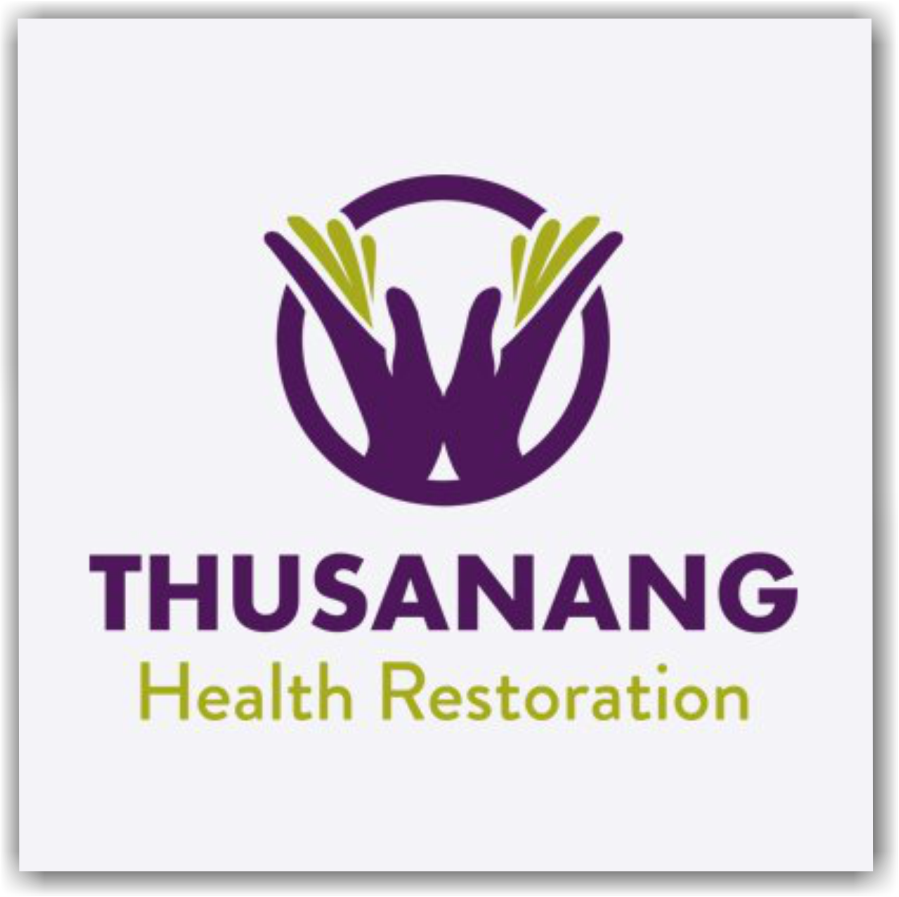 training aimed at equipping the caregivers with adequate hands-on knowledge on how to assist disabled individuals in their day-to-day lives including healthy living, hygiene, simple exercise, diet, etc. Thusanang have offices in both Boksburg and Limpopo, you can contact them at:
training aimed at equipping the caregivers with adequate hands-on knowledge on how to assist disabled individuals in their day-to-day lives including healthy living, hygiene, simple exercise, diet, etc. Thusanang have offices in both Boksburg and Limpopo, you can contact them at:
Boksburg: You can contact Ms Edwina Makgamatha on Tel: +27 (0) 11 453 0480 or Email: edwina@te-ss.co.za or visit their office at: Boksburg: Unit 19, Jan Smuts Park, 62 Jones Road, Jet Park, Boksburg 1459.
Limpopo: You can contact Ms Naomi Maremane at the Limpopo Office at: Shop 6B Mokopane Plaza, 101 Nelson Mandela Drive, Mokopane 0600 on Tel: +27 (0) 15 491 1099 or Email: naome@te-ss.co.za. Alternatively you can view their Catalogue, or visit their website at: www.te-ss.co.za
5. Loss of Strength & Muscle Tone
Loss of Strength and Muscle Tone, is one of the more noticeable complications or side effects of having a serious Mobility Impairment, whether it be through disease or injury. Persons who are permanently in a wheelchair, or are bedridden and are unable to move their arms or legs may start to experience Muscle atrophy where your muscles start to waste away due to lack of physical activity. This type of atrophy often occurs just after you are injured and are recovering in hospital, but can often be reversed with exercise and improved nutrition. Regaining muscle mass is beneficial for people of all ages and improves appearance, increases strength and lowers blood pressure, it also increases bone density and helps reduce the risk of osteoporosis-related fractures.
You can regain muscle mass quickly by incorporating strength training into your daily routine and making a few minor dietary modifications such as increasing your protein intake. You should eat up to 1 gram of protein per pound of body weight during your rebuilding period and also increase your intake of vegetables, healthy fats, and fruits, and consider supplementing with fish oil. You also need to make sure that you get enough sleep and vitamin D and don't cut carbs but limit your alcohol intake. A Dietitian can also assist you to draw up a diet to assist with this, visit our Dietitian section below to find out more, or visit our Exercise & Rehabilitation section below.
6. Gaining Weight
Some persons with Mobility Impairments who use wheelchairs or scooters are also at a high risk of gaining weight, after initially losing weight when they are first injured. After returning home from hospital, they often find it difficult to gauge how many calories they need to eat and so eat more than they need, but use less energy through physical activity, and so begin to put on weight, they then find it harder to lose weight, because they tend to use fewer calories through the fact that they are often less active. “Wheelchair users also tend to lose muscle in their legs over time and less muscle requires fewer calories to maintain your body weight.”
Persons with Mobility Impairments, especially those who use Wheelchairs can encounter various complications if they are overweight or obese, these complications include:
- Difficulty Transferring or being transferred
- Increased risk of Pressure Sores
- A range of serious health conditions, including type 2 diabetes, heart disease and certain cancers.
There are however still changes you can make to achieve a healthy weight, but you will need to adjust your diet and level of physical activity, to use more energy than you consume through food and drink. You can start by eating fewer calories and being more active. If your ability to move around is severely restricted by your condition, then dieting will be the main way that you can lose weight.
You should aim to lose between 0.5kg and 1kg a week until you reach your target weight, thereafter a healthy, balanced diet and regular physical activity will help you to maintain a healthy weight in the long term. Tips to losing weight include:
- Get into a regular eating pattern
- Achieve a balanced diet
- Become more physically active
- Drink lots of water throughout the day and before meals
- Reduce overeating and portion sizes.
- Avoid alcohol, sugar and to many starches
- Learn new long-term lifestyle skills
The average man needs around 2,500 calories a day to maintain his body weight. The average woman needs around 2,000 calories a day. If you are a wheelchair user, it’s likely you’ll need less calories than these guideline amounts, but becoming more active is important to maintain a healthy weight and this will help you to use more calories regularly than you consume in food and drink, which will lead to better fitness and help weight loss. Contact your Doctor to discuss an exercise plan and a Dietitian to help you to work out your daily calorie needs.
Dietitian
A Dietitian is an expert in human nutrition and the regulation of a diet. A Dietitian alters their patient's nutrition based upon their medical condition and individual needs. Dietitians are the only healthcare professionals licensed to assess, diagnose, and treat nutritional problems.
Regulating the diet of patients with certain conditions or mobility impairments is out of physician's scope of expertise, thus a Dietitian must be called to permit any changes based upon their knowledge of nutritional biochemistry. Dietitians work in a variety of settings including hospitals, health-maintenance organizations, private practices, and other health-care facilities.
After learning about a patient's health history, favorite foods, eating and exercise habits, the dietitian helps the person to set goals and to prioritize. Follow-up visits often focus on maintenance and monitoring progress.
A balanced diet is important to staying healthy, but exercise together with a balanced diet, is even more important to reduce your weight and to stay healthy. You should aim to do regular cardiovascular activity, as well as regular muscle-strengthening exercise. Cardiovascular physical activity is particularly important when it comes to losing weight. This activity raises your heart rate and gets you slightly out of breath and can causes you to break a sweat.
There are various Dietitians throughout South Africa that can assist persons with disabilities throughout South Africa, visit our Health Care - Search Facility and search for a "Dietitian" or Contact Us.
Exercise & Rehabilitation
Rehabilitation is a step-by-step process that helps persons to recover and to function as effectively as possible after a life-changing event. For persons with Mobility Impairments, this may include getting them moving again, helping them regain their strength through exercise, relearning old skills, or finding new and different ways of doing things. A team of doctors, nurses, social workers, physiotherapists and occupational therapists will oversee the rehabilitation process. Rehabilitation may be needed for a short period, after an operation, or for a longer time, such as after a stroke. The length of time is decided by the team and can take place:
- in hospital or in an in-patient rehabilitation facility
- on a long-term outpatient or day patient basis at a hospital
- in a community rehabilitation centre or in the person’s own home, depending on where the person lives.
As mentioned above, a balanced diet is important to staying healthy, but exercise together with a balanced diet, is even more important, as this will assist you to reduce your weight quicker and to stay healthy. Exercise assists you to keep motivated and to stick to a balanced eating plan.
It is recommended that to improve fitness, adults with SCI should engage in at least 20 minutes of moderate to vigorous intensity aerobic exercise two times a week and three sets of moderate strengthening exercise for each major functional muscle groups two times per week. To improve cardiometabolic health, it is suggested they engage in at least 30 minutes of moderate to vigorous intensity aerobic exercise, three times per week.
There are a variety of different ways that you can exercise, including doing regular:
You should start slowly and build into it, whether you are playing sport, going to therapy, exercising at home or spending time at the gym.
Physiotherapy
Physiotherapy involves the illnesses, or injuries that limit persons abilities to move and perform functional activities in their daily lives. Physical Therapists use a persons history and physical examination to arrive at a diagnosis and establish a management plan which commonly includes assistance with specific exercises, manual therapy and manipulation, mechanical devices such as traction, education, physical agents which includes heat, cold, electricity, sound waves, radiation, prescription of assistive devices, prostheses, orthoses and other interventions.
Physical Therapists also work with individuals to prevent the loss of mobility before it occurs by developing fitness and wellness-oriented programs for healthier and more active lifestyles, providing services to individuals and populations to develop, maintain and restore maximum movement and functional ability throughout their lifespan. This also includes providing therapeutic treatment in circumstances where movement and function are threatened by aging, injury, disease or environmental factors. It is therefore important to continue with physiotherapy throughout your life, even once your rehabilitation period is over.
Physical Therapists offer a variety of different types of treatments to assist in rehabilitation and recovery. These include Standing & Walking Rehabilitation; Hydrotherapy; Electrotherapy and even Hippo Therapy.
If you don't already have a Physio Therapist, you can search for a Physio Therapist on our Health Care - Search Facility or visit www.sadoctors.co.za - physio therapists to find a Physio Therapist in your area.
Hippo & Horse Riding Therapy
Horse riding is available for persons with Mobility Impairments in South Africa, as a sport, hobby and as various forms of therapy, known as Horse Riding Therapy, Hippo Therapy & Equine Therapy. Horse Riding can be enjoyed by children of almost all ages and is a Therapy whereby horses are used which have a major physical and emotional impact on  persons with a wide variety of issues and disabilities, including persons with Physical disabilities or Mobility Impairments. These benefits include:
persons with a wide variety of issues and disabilities, including persons with Physical disabilities or Mobility Impairments. These benefits include:
If you don't already have a Hippo Therapist, you can search for a Hippo Therapist on our Health Care - Search Facility
Sports
Sports are very important to keep a person healthy and are even more important if that person has had an injury or has a Mobility Impairment and is in a wheelchair. Sports offer many advantages to persons with disabilities and are equally important, not only when you are first injured, to build up your strength, but also in later years, to keep you fit, assist to keep the weight off and to make sure that you don't lose any movement or strength that you have regained since you injury. Persons with Mobility Impairments or Physical Disabilities can take part in a variety of Sports at both club, provincial and international level. Whatever your age, disability, experience level, or gender, there's a place for you in Mobility Impaired sports. Whether you prefer team or individual sports, Winter or Summer sports, high action or something a bit slower, if you've got the enthusiasm & the drive, you can find something in this section that will suit you. Focus on the things that you can do, rather than those you cannot and click on the link below to see what sports are available in South Africa and to find out more about them.
Disclaimer
Please note that the FREE services and website that we offer is privately run & funded and is not run or funded by the Government or any Organization. We therefore rely on advertising and donations to continue to supply and improve this Free service. The Companies, Clubs, Schools and Organizations that have their logos on this site, have advertised or made donations to the Website and have therefore assisted us be able to continue to offer this free Service. Please support them as they have supported Us and please contact us if you can advertise with us or would like to make a donation!
N.B: This Website is continually changing and being improved some sections may therefor be incomplete or have links and contact details that are outdated. We are making every effort to keep this to a minimum, so we ask for your patients in this regard and to please Contact Us if you notice that your Companies, Clubs, Schools or Organizations details are incorrect or have changed.
Thank you for visiting our website, we hope that it will be helpful, please feel free to visit our Facebook Page to leave a comment.
